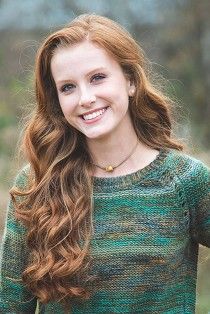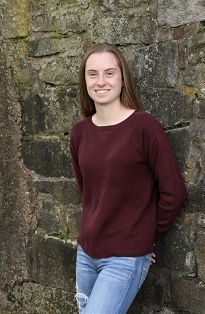 Written by Mike Price, OT
Written by Mike Price, OT
Congratulations to the 2019 RehabMart Scholarship winners, Noelle Kate Simoneaux and Tatum Lewis-Holcombe!
The RehabMart Scholarship was established in 2016 to highlight outstanding students living with disabilities and those pursuing health sciences and special needs education goals.
RehabMart is a leading provider of medical supplies, healthcare technologies, and rehabilitation products. They were founded in 1998 by occupational and physical therapists.
As therapists, married family men, and fathers to special needs children of their own, RehabMart’s founders wanted to show their gratitude to the special needs education and healthcare systems by providing scholarship awards to others pursuing these same kinds of career goals, and to students living with disabilities.
Scholarship applicants were asked to write a biography about themselves, along with an essay explaining what device, technology, or therapeutic technique has made the biggest difference (or would make in the future) in the life of a disabled adult or child.
As in years past, this year’s winners were chosen based on clear, concise, and informative essay content, along with biographies including pertinent information such as volunteer work, extra-curricular activities, and other ways that the student is overcoming challenges and helping others.
Selected from over 1,482 entries, this year’s RehabMart scholarship winners exemplify the best qualities for success and personal achievement. Although there are always so many great and deserving scholarship entries RehabMart receives each year, 2019’s winners demonstrate perseverance and an unwillingness to concede defeat.
We’re inspired by their personal stories, along with their essays about how certain devices helped them both to succeed. We think you will be, too.

Beginning a psychology major with a possible minor in cognitive science at Indiana University-Bloomington this fall, Noelle Kate Simoneaux eventually plans to pursue an advanced degree in either occupational therapy or clinical psychology.
Struggling in her early school years, Simoneaux was eventually diagnosed with multiple visual disorders. Vision therapy and specially designed glasses changed her world dramatically, helping her to excel in her studies.
Even though she often still had to work harder than other students, she thrived in the more challenging high ability classes, which her teachers placed her in as they recognized her outstanding scholastic abilities.
Along with her educational pursuits, Simoneaux has been involved with a number of extra-curricular activities, such as soccer, track, dance, and cheer, along with various clubs like Mini Vinnies, Young Life, Key Club, and French Club.
One of her biggest passions lies with music, especially singing, and she has participated in a number of varied musical activities, explaining that singing continues to provide her a safe haven from the struggles of life, as something she can enjoy herself, while also entertaining others.
The prism correction technology she discusses in her informative essay is what helped Simoneaux to gain control of her own vision impairments. Though it’s a relatively simple technology, it provides life-changing help for people with a range of visual disorders causing eye misalignment and double vision.
As she explains in further detail in her essay, these certain visual disorders can cause a host of problems, such as eye strain, headaches, and seeing words and numbers backward. But prism correction glasses provide a simple, inexpensive solution to thousands of people every year, of which Noelle is very grateful.

As a recent high school graduate accepted into several colleges, Tatum Lewis-Holcombe chose to attend Southern Connecticut State University, with an interest in health sciences.
Diagnosed at age 3 with bilateral sensori-neural hearing loss, Lewis-Holcombe thanks several different devices for helping him with both his scholastic endeavors and other areas of his life. Specifically, he mentioned hearing aids, FM listening systems, and C-print services.
However, when this combination failed him in the faster pace of high school, he discovered CART, or Communication Access Real-Time Translation. As an innovative captioning tool, CART conveys the speaker’s words with minimal delay. Not only does it convey the teacher’s words, but it also shows what other students are saying as well, all with only a 2-3 second delay.
Completely transforming his school life for the better, CART helped Lewis-Holcombe to keep up with this hearing-able peers, enabling him to receive his lessons in the same time frame. He maintained a 3.3 grade point average, and played on his school’s volleyball team for four years.
Involved in quite a few extra-curricular activities, Lewis-Holcombe was a Police Cadet for 7 years, a YMCA camp counselor in the summer months, and even trained his YMCA group for the Race 4 Chase triathlon program by the Sandy Hook Memorial Foundation.
One of the biggest ways Lewis-Holcombe assists others is through his volunteer work for other people affected by hearing loss, including serving on the Board of Directors for Hear Here Hartford (a local chapter of the Hearing Loss Association of America), and through his own team, Tate’s Troop, for CT Walk4Hearing, in which he was the National Featured Walker in 2015. His hearing loss hasn’t slowed him down, and he wants to show others living with similar issues that they, too, can overcome their challenges.

After three years, over 6,000 applicants, and 64 winners, RehabMart’s Scholarship program is at its end.
As a plan to help deserving students to realize their educational goals, we are grateful to be afforded this opportunity to give back to the professions that positively impact families and individuals every year.
We sincerely thank everyone who has participated in our scholarship program, and for sharing your amazing stories and ideas with us. RehabMart wishes you all the best, every success, and for each student to realize their dreams and full potential.

Co-Founder of Rehabmart and an Occupational Therapist since 1993. Mike has spent his professional career working in multiple areas of Occupational Therapy, including pediatrics, geriatrics, hand therapy, ergonomics and inpatient / outpatient rehabilitation. Mike enjoys writing articles that help people solve complex therapeutic problems and make better product choices.